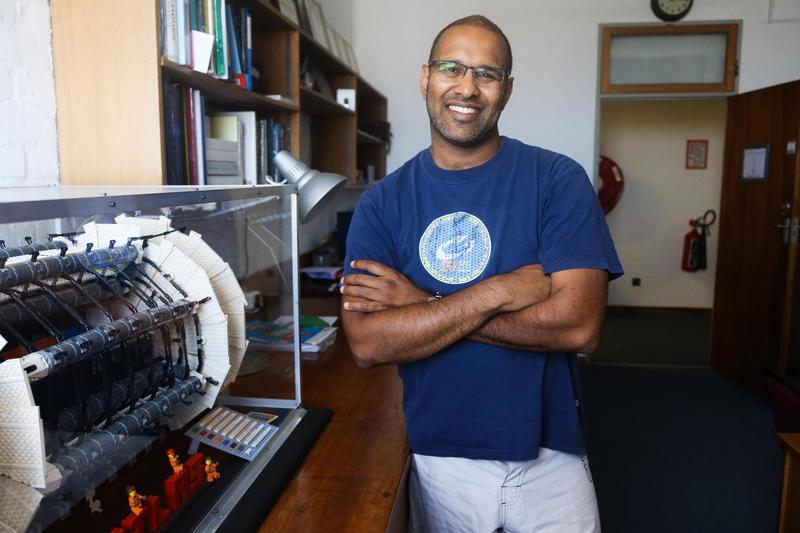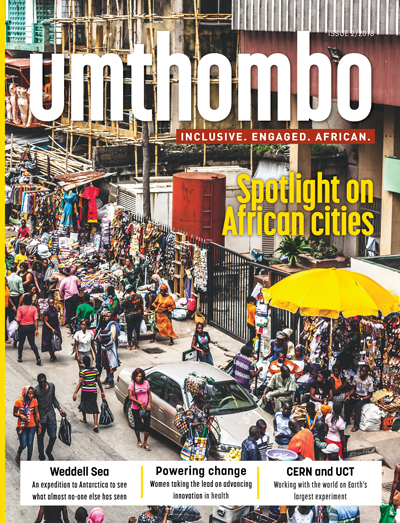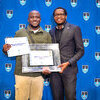Inspiring wonder in how the universe works
06 November 2018 | Story Nadia Krige. Photo Je’nine May. Read time 3 min.
Dr Sahal Yacoob’s involvement with SA-CERN and his work on the ATLAS experiment as a representative of not only his country but also his alma mater has been a hugely gratifying experience.
Yacoob’s journey with CERN started in 2010 – the same year that the LHC and ATLAS started producing data – with a postdoc appointment at the University of the Witwatersrand. During his two years there, Yacoob had the opportunity to assist with some of the background work to the discovery of the Higgs Boson, which has come to be one of the greatest feats in the recent history of particle physics.
This was followed by an attempt to build an ATLAS group at the University of KwaZulu-Natal, before returning to UCT – where he completed his studies up to master’s level – to work on ATLAS together with Dr Andrew Hamilton. Hamilton has since taken a position elsewhere, leaving Yacoob as UCT’s sole academic ATLAS representative.
Having played a small, but essential role in the Higgs Boson discovery, Yacoob has first-hand experience of how valuable it can be to form part of this elite academic network.
“CERN and ATLAS are an international collaborative community,” Yacoob explains. “It is not always the friendliest place in the world: it is competitive and full of very smart people who are ambitious. But it’s also full of people who understand that they need a healthy community and try to foster young researchers.”
Having played a small, but essential role in the Higgs Boson discovery, Yacoob has first-hand experience of how valuable it can be to form part of this elite academic network. Because of this, drumming up excitement for SA-CERN among students is almost second nature.
“There’s a certain wonder in finding out how the universe works,” says Yacoob. “To be able to work with students who’ve had that same feeling and to give them the opportunity to see that there’s a commonality in this search for understanding that transcends our cultural, geographic and racial backgrounds – it’s key.”
 This story was published in the second issue of Umthombo, a magazine featuring research stories from across the University of Cape Town.
This story was published in the second issue of Umthombo, a magazine featuring research stories from across the University of Cape Town. Umthombo is the isiXhosa word for a natural spring of water or fountain. The most notable features of a fountain are its natural occurrence and limitlessness. Umthombo as a name positions the University of Cape Town, and this publication in particular, as a non-depletable well of knowledge.
Read the complete second issue online or subscribe and receive new issues in your inbox every few months.
 This work is licensed under a Creative Commons Attribution-NoDerivatives 4.0 International License.
This work is licensed under a Creative Commons Attribution-NoDerivatives 4.0 International License.
Please view the republishing articles page for more information.










